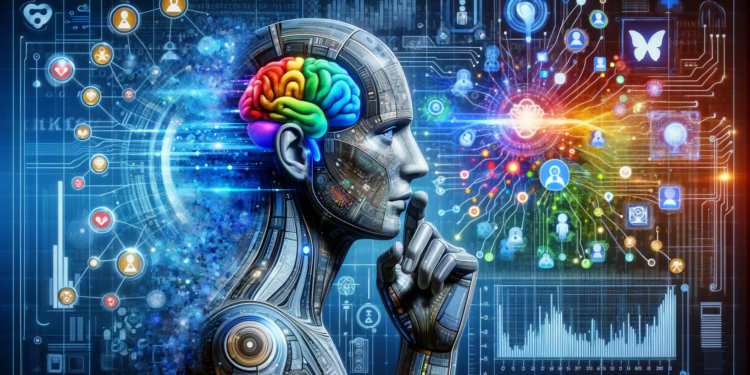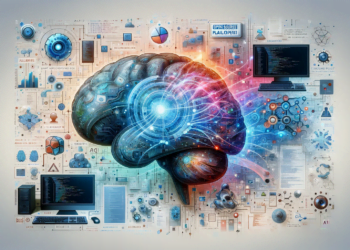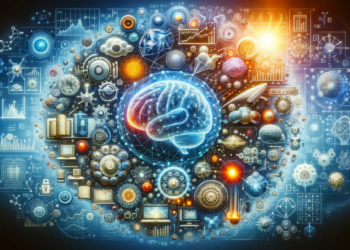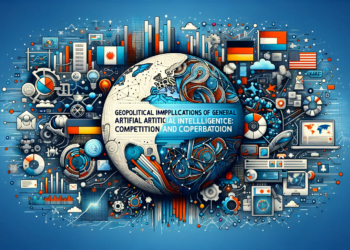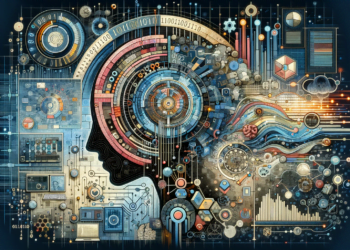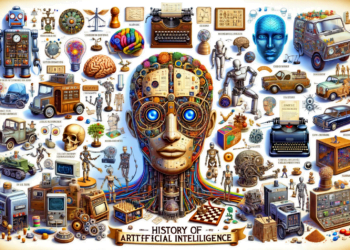General Artificial Intelligence (AGI), also known as strong artificial intelligence, represents a horizon where machines achieve human cognitive capability in all its forms. Unlike narrow or weak AI, AGI is not confined to specific tasks, being flexible and adaptable to infinite contexts. In its pursuit, a psychological construct emerges as an element of interest: emotional intelligence (EI). Traditionally relegated to the background in the development of AI systems, EI is gaining new prominence considering its crucial role in human cognition and decision-making.
The Paradigm of Emotional Intelligence in AGI
Emotional intelligence, understood as the ability to identify, understand, manage, and use emotions effectively, is a differentiating factor in human interactions. By incorporating EI into AGI, it is proposed that a greater harmonization between humans and machines can be achieved, promoting more empathetic and socially adept systems. However, implementing EI in AGI challenges the traditional conceptions of machine intelligence based on pure logic and rationality.
Advances in Computational Affective Modeling
AI has experienced significant advances in affective modeling. This field seeks to simulate and understand emotional states through computational methods. Deep learning algorithms and neural networks are adapted to discern emotional patterns in data such as voice tone, facial expressions, and body language. In parallel, the neuronal theory of emotions suggests that emotions can be encoded and processed in a manner similar to other types of sensory information. The recent “Affective-Siamese” model illustrates how AI can be taught not only to recognize emotions but also to predict emotional responses in hypothetical situations.
The Role of Emotional AI in Practical Contexts
In practical applications like personal virtual assistants, the integration of EI has proven to be promising. Enhancing the adaptive and empathetic nature of these assistants entails a revolution in their ability to provide support and assistance. For instance, the “EmoVoice” assistant is capable of adjusting its responses not only to the verbal content but also to the user’s emotional tone, demonstrating a qualitative leap in human-machine interaction.
Technical and Ethical Challenges
Incorporating emotional intelligence into AGI poses technical and ethical challenges. Creating algorithms that correctly interpret emotional states requires vast amounts of contextualized data. This requirement raises questions about privacy and consent. Additionally, the possibility that AGI might manipulate emotions raises ethical concerns regarding control and the consequences of its actions.
Comparative Reflection with Previous Research
Compared with previous research, the current focus on EI in AI shows conceptual maturation. Formerly, AI was focused on solving tasks in an isolated manner and with superhuman performance. Now, it is recognized that to achieve true holistic intelligence, machines must be capable of navigating the complex human social and emotional fabric.
Future Projections in Emotional Artificial Intelligence
Looking towards the future, emotional AI could lead to AGI with conflict resolution, negotiation, and leadership abilities comparable to human leaders. We envision the management of teams where AI facilitates group dynamics, mediating disagreements, and strengthening cohesion through advanced emotional awareness.
Case Studies: Emotional AI in Critical Processes
AI systems with integrated EI are already being implemented in critical fields such as medicine and mental health. A case study is “Ellie,” developed by USC to detect signs of depression and anxiety. Ellie analyzes verbalizations, voice modulations, and microfacial expressions to evaluate patients’ emotional states. This capability for early and accurate detection is reshaping the approach to mental health.
In conclusion, the integration of emotional intelligence into general artificial intelligence presents a new frontier in the development of cognitive systems. Advances in the understanding and modeling of emotions promise a generation of AGI that is more adaptable and more integrated into society. Overcoming the current challenges and contemplating ethical repercussions will be essential steps towards the creation of benevolent and effective AGI. As AI continues to evolve, its ability to process and respond to human emotions will not only be desirable but perhaps indispensable.

